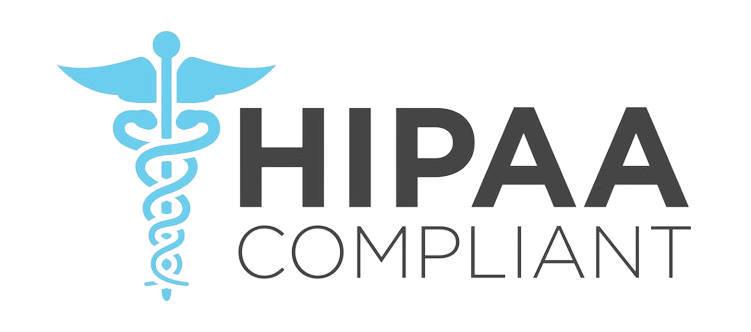Tirzepatide does not typically cause high blood pressure. Clinical studies have not shown a significant link between Tirzepatide and hypertension.
Tirzepatide is a medication used for managing type 2 diabetes. It helps regulate blood sugar levels by mimicking certain hormones in the body. This drug has gained attention for its effectiveness in controlling glucose levels and aiding weight loss. Patients and healthcare providers are always concerned about potential side effects.
High blood pressure is a common concern with many medications. Fortunately, current research indicates that Tirzepatide does not significantly impact blood pressure. This makes it a safer option for those who already have hypertension or are at risk. Always consult your healthcare provider for personalized advice.
Tirzepatide At A Glance
Tirzepatide is making waves in diabetes management. It’s not just another drug. This medication could change how we treat type 2 diabetes. But can it cause high blood pressure? Let’s explore.
A New Player In Diabetes Management
Tirzepatide offers hope for many. It’s a new medication approved for type 2 diabetes. Unlike older drugs, it targets multiple pathways. This means it can lower blood sugar more effectively. It also helps with weight loss, which is a bonus for many patients.
Here are some key points about Tirzepatide:
- Approved by the FDA in 2022
- Targets both GLP-1 and GIP receptors
- Administered via weekly injections
- Shown to reduce A1C levels significantly
How Tirzepatide Works
Tirzepatide works differently from other diabetes medications. It targets two receptors: GLP-1 and GIP. These receptors play roles in insulin secretion and appetite regulation. By activating both, Tirzepatide helps the body manage blood sugar better.
Here’s a simple breakdown:
| Receptor | Function | Effect |
|---|---|---|
| GLP-1 | Increases insulin secretion | Lowers blood sugar |
| GIP | Reduces appetite | Aids in weight loss |
By targeting both receptors, Tirzepatide provides a dual approach. This makes it more effective than drugs targeting just one pathway.
Many patients see an improvement in their diabetes control. Some even report significant weight loss. This makes Tirzepatide a promising option for many.

Credit: www.everydayhealth.com
High Blood Pressure Basics
High blood pressure, or hypertension, is a common health issue. It affects millions of people worldwide. Understanding its basics is crucial for managing your health. This section will help you grasp the essentials.
What Constitutes High Blood Pressure?
Blood pressure measures the force of blood against artery walls. It’s recorded as two numbers: systolic and diastolic. Systolic pressure measures the force during heartbeats. Diastolic pressure measures the force when the heart rests between beats.
| Blood Pressure Category | Systolic mm Hg | Diastolic mm Hg |
|---|---|---|
| Normal | Less than 120 | Less than 80 |
| Elevated | 120-129 | Less than 80 |
| High Blood Pressure (Hypertension) Stage 1 | 130-139 | 80-89 |
| High Blood Pressure (Hypertension) Stage 2 | 140 or higher | 90 or higher |
| Hypertensive Crisis | Higher than 180 | Higher than 120 |
Health Implications Of Hypertension
Hypertension can lead to severe health problems. It increases the risk of heart disease. It can also cause stroke and kidney damage. Here are some common health issues related to hypertension:
- Heart attack
- Stroke
- Heart failure
- Kidney disease
- Vision loss
Managing your blood pressure is crucial. Regular check-ups can help detect any issues early. Lifestyle changes, like a healthy diet and exercise, can make a big difference.
Linking Tirzepatide To Blood Pressure Changes
Understanding how Tirzepatide impacts blood pressure is crucial for patient safety. This medication, primarily used for diabetes, has shown various effects on blood pressure. Let’s explore what clinical research and patient experiences reveal about this connection.
Clinical Research Findings
Clinical trials provide valuable insights into the effects of Tirzepatide on blood pressure. Studies indicate mixed results regarding blood pressure changes.
| Study | Outcome |
|---|---|
| Study A | Minor increase in blood pressure |
| Study B | No significant change |
| Study C | Decrease in blood pressure |
Researchers emphasize the need for personalized medical advice. Not all patients experience the same side effects.
Patient Testimonials And Reports
Patient experiences with Tirzepatide vary greatly. Some users report an increase in blood pressure.
- John, 45: “I noticed my blood pressure went up slightly.”
- Linda, 52: “My blood pressure stayed the same.”
- Mike, 39: “I actually saw a decrease in my numbers.”
These anecdotes highlight the diverse responses to the medication. It’s essential to monitor blood pressure regularly while on Tirzepatide.
Potential Side Effects Of Tirzepatide
Understanding the side effects of Tirzepatide is crucial for safe usage. This medication can cause various reactions in different individuals. Knowing these side effects helps manage them better.
Common Adverse Reactions
Some common side effects can affect daily activities. These include:
- Nausea
- Vomiting
- Diarrhea
- Decreased appetite
- Headache
These reactions are often mild and go away with time. Always consult your doctor if any side effect persists.
Monitoring For Blood Pressure Variations
Blood pressure changes are a concern with Tirzepatide. Regular monitoring is essential. High blood pressure can lead to serious health issues. Keep an eye on these symptoms:
- Severe headaches
- Chest pain
- Shortness of breath
- Dizziness
Document any changes in your blood pressure readings. Share these with your healthcare provider.
Blood pressure monitoring tips:
- Use a reliable blood pressure monitor.
- Check your blood pressure at the same time daily.
- Keep a log of your readings.
Consulting with your doctor regularly ensures you manage any adverse effects effectively.
Managing Risks And Safeguarding Health
Taking Tirzepatide can offer many benefits but may also pose risks, such as high blood pressure. Understanding how to manage these risks is crucial. This section will guide you on how to control blood pressure and when to seek help from a healthcare professional.
Strategies For Blood Pressure Control
Controlling blood pressure is vital while on Tirzepatide. Here are some effective strategies:
- Regular Exercise: Engage in activities like walking, swimming, or yoga.
- Healthy Diet: Focus on fruits, vegetables, whole grains, and lean proteins.
- Limit Salt Intake: Reduce the amount of sodium in your diet.
- Avoid Alcohol: Limit alcohol consumption to maintain healthy blood pressure.
- Stay Hydrated: Drink plenty of water throughout the day.
Incorporating these strategies can help you manage blood pressure levels effectively.
When To Consult A Healthcare Professional
It’s important to know when to seek medical advice. Consult a healthcare professional if you experience any of the following symptoms:
| Symptom | Action |
|---|---|
| Severe Headaches | Contact your doctor immediately. |
| Shortness of Breath | Seek medical attention right away. |
| Chest Pain | Visit the emergency room without delay. |
| Vision Changes | Schedule an appointment with your healthcare provider. |
These symptoms may indicate high blood pressure or other complications. Early intervention can prevent serious health issues.

Credit: www.nytimes.com

Credit: www.news-medical.net
Frequently Asked Questions
Can Tirzepatide Increase Blood Pressure?
Tirzepatide does not typically increase blood pressure. Some users may experience mild fluctuations, but serious issues are rare. Consult your doctor for personalized advice.
Does Mounjaro Affect Blood Pressure?
Mounjaro can affect blood pressure. Some users may experience elevated or lowered blood pressure. Consult your doctor for guidance.
Does Tirzepatide Increase Your Heart Rate?
Tirzepatide may increase heart rate in some individuals. Consult your healthcare provider for personalized advice and monitoring.
What Are The Drawbacks Of Tirzepatide?
Tirzepatide can cause nausea, vomiting, and diarrhea. Some users may experience low blood sugar, especially when combined with insulin. Pancreatitis and gallbladder issues are also potential risks. Always consult a healthcare provider before use.
Can Tirzepatide Raise Blood Pressure?
Tirzepatide might raise blood pressure in some individuals. Monitor your blood pressure regularly while on this medication.
What Are Tirzepatide Side Effects?
Common side effects include nausea, diarrhea, and possible increased blood pressure. Consult your doctor for a full list.
Is High Blood Pressure A Tirzepatide Risk?
Yes, high blood pressure can be a potential risk. Regular monitoring and consultation with a healthcare provider are advised.
How Does Tirzepatide Affect Blood Pressure?
Tirzepatide can sometimes cause a rise in blood pressure. It’s important to monitor this side effect closely.
Can Tirzepatide Cause Hypertension?
Yes, Tirzepatide may lead to hypertension in some patients. Always discuss any concerns with your doctor.
Should I Monitor Blood Pressure On Tirzepatide?
Absolutely, regular blood pressure checks are recommended while taking Tirzepatide to ensure safety and effectiveness.
Conclusion
Understanding Tirzepatide’s effects on blood pressure is crucial. Research indicates potential risks, but individual responses may vary. Consult your healthcare provider for personalized advice. Always monitor your health and report any concerns. Stay informed to make the best decisions for your well-being.


